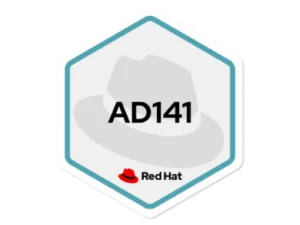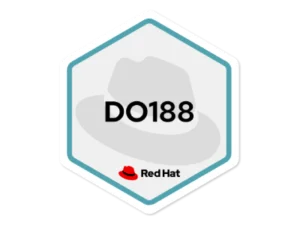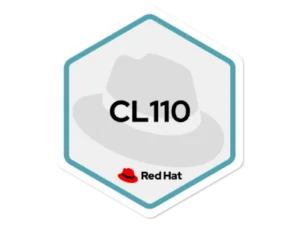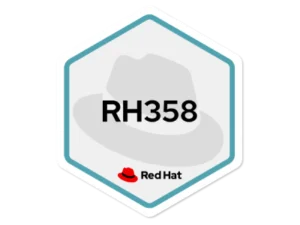Red Hat System Administration III: Linux Automation (RH294) – RHEL 9
The Red Hat Enterprise Linux Automation with Ansible (RH294) course equips seasoned Linux system administrators who have finished RH124 and RH134 with the knowledge and abilities necessary to effectively and reliably manage a large number of systems and applications. The methods required to automate provisioning, configuration, application deployment, and orchestration using Ansible® will be practically practiced by learners.
Overview
The Red Hat System Administration III: Linux Automation (RH294) – RHEL 9 course is intended for Linux developers and system administrators who need to automate orchestration, provisioning, configuration, and application deployment. This course covers the fundamentals of creating and maintaining Ansible playbooks as well as introducing Ansible automation. Beginning with the fundamental Red Hat Ansible Engine installation and host management configuration, it moves on to more complex subjects including task control, roles, and troubleshooting. Students will have practical experience with the procedures and resources required to integrate Ansible into their operations by enrolling in RH294. The final exercises in the course focus on automating Linux administration operations, which improves the IT environment’s consistency and efficiency.
What you will Learn in this Red Hat System Administration III: Linux Automation (RH294) – RHEL 9 Course?
- Understand fundamental Ansible concepts and complete the installation of Red Hat Ansible Engine.
- Configure Ansible to manage nodes effectively and execute ad hoc commands for immediate automation tasks.
- Develop simple Ansible Playbooks to automate tasks across multiple managed hosts, enhancing scalability and reliability.
- Utilize variables and facts within playbooks to create dynamic and flexible automation scripts that adapt to different environments.
- Implement task control within playbooks to manage execution flow, handle errors, and trigger condition-based actions.
- Deploy and manage files on managed hosts, ensuring consistent and accurate file states across your infrastructure.
- Organize and optimize playbooks for complex projects, improving efficiency and readability of automation scripts.
- Simplify the development and maintenance of playbooks by creating and using reusable Ansible roles.
- Troubleshoot common issues in Ansible playbooks and managed hosts, developing skills to quickly resolve automation challenges.
- Automate routine Linux administration tasks, freeing up time for more strategic work and reducing the potential for human error.
Who should take up this Red Hat System Administration III: Linux Automation (RH294) – RHEL 9 Course?
- System Administrators
- DevOps Engineers
- IT Automation Engineers
- Systems Design Engineers
- Cloud Administrators
- Infrastructure Automation Professionals
- Red Hat Certified Engineers (RHCEs) looking to update their skills
- Software Developers with a focus on automation and deployment
- IT professionals working with containerization and orchestration
- Network Administrators aiming to automate network tasks
- Security Engineers interested in automating security compliance
- Technical Lead Managers overseeing infrastructure automation initiatives
- Quality Assurance Engineers automating test and deployment processes
Our Package
Describe Ansible concepts and install Red Hat Ansible Engine
Write a simple Ansible Playbook and run it to automate tasks on multiple managed hosts.
Write playbooks that use variables to simplify management of the playbook and facts to reference information about managed hosts.
Manage task control, handlers, and task errors in Ansible Playbooks.
Deploy, manage, and adjust files on hosts managed by Ansible.
Write playbooks that are optimized for larger, more complex projects
Use Ansible Roles and Ansible Content Collection to develop playbooks more quickly and to reuse Ansible code.
Troubleshoot playbooks and managed hosts.
Automate common Linux system administration tasks with Ansible.
Upcoming Batch
April 20th (Weekends)
FRI & SAT (4 Weeks)
08:30 PM to 01:00 AM (CDT)
April 18th (Weekdays)
MON – FRI (18 Days)
10:00 AM to 12:00 PM (CDT)
Red Hat System Administration III: Linux Automation (RH294) – RHEL 9 FAQs
The RH294 course focuses on automating RHEL 9 system administration with Ansible, covering playbook creation, variable use, task control, templates, roles, and workflow management for enterprise automation proficiency.
Post RH294 training, you can pursue roles like DevOps Engineer, System Administrator, or IT Automation Specialist, benefiting industries like tech, finance, and government with substantial career growth prospects in IT.
- Basic Linux Command Line Skills: Familiarity with the Linux command line, including the ability to execute and understand simple commands and navigate the file system.
- Fundamental Linux System Administration: Knowledge of basic system administration tasks, such as managing users and groups, creating and editing files, and configuring system services.
- Understanding of Red Hat Enterprise Linux (RHEL): Experience with or knowledge of the installation and configuration of RHEL or a similar Linux distribution.
- Exposure to Red Hat Certified System Administrator (RHCSA) level concepts: While not mandatory, having the RHCSA certification or equivalent knowledge will be highly beneficial.
- Basic Networking Knowledge: An understanding of networking concepts, including TCP/IP, Internet routing, and basic firewall concepts.
The course Red Hat System Administration III: Linux Automation (RH294) – RHEL 9 is linked to EX300.
The duration of the course 40 hours.
A laptop, decent internet speed, a Headset with microphone is required.








Reviews
There are no reviews yet.